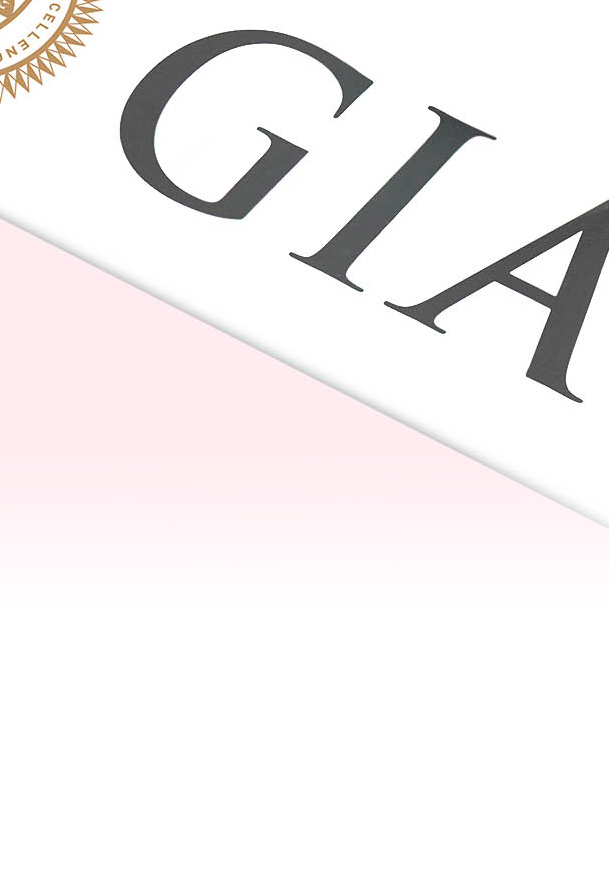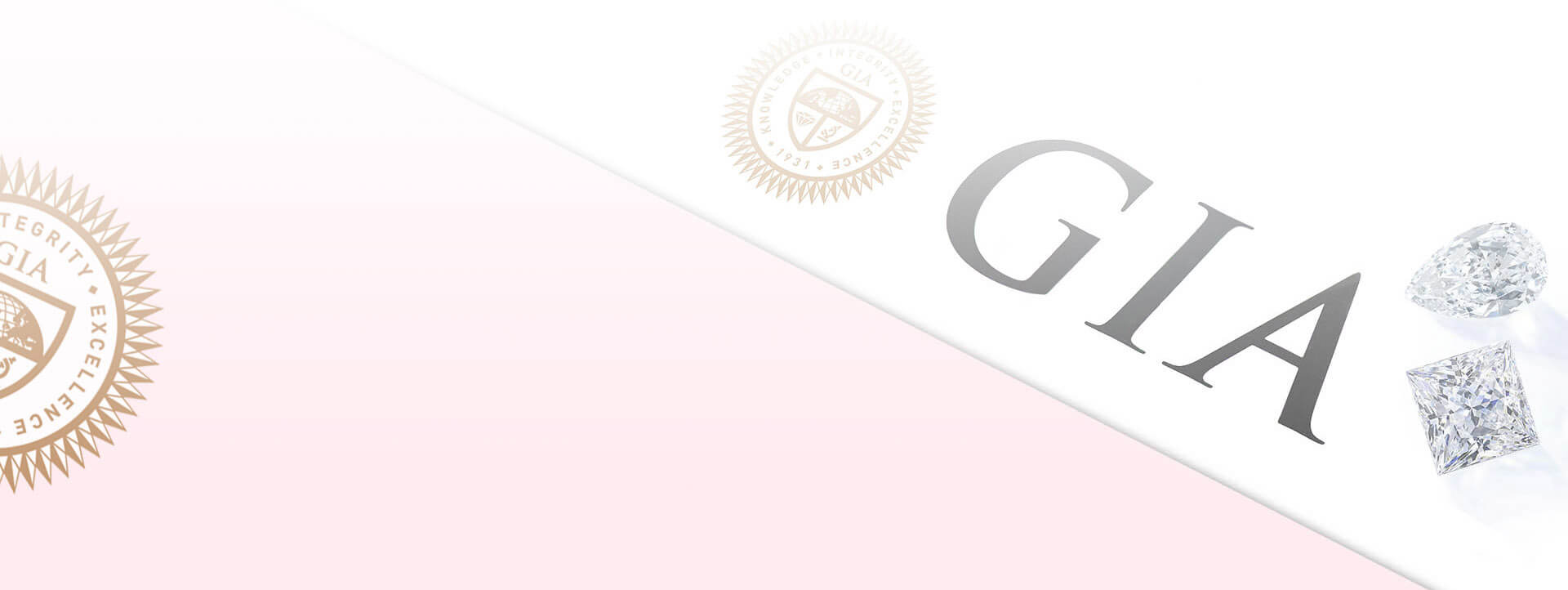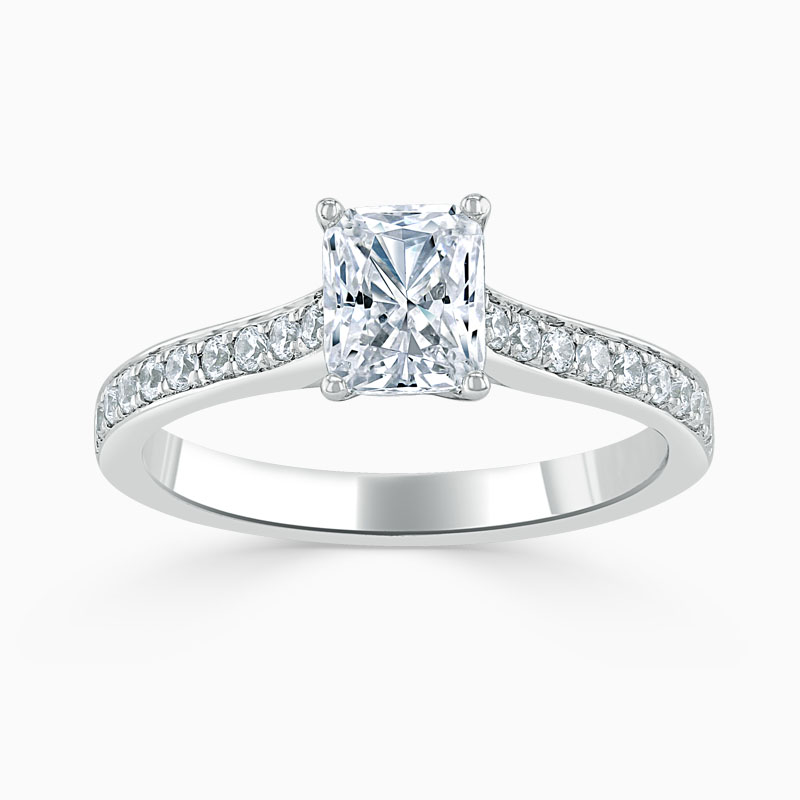 Why GIA Diamonds
Why GIA Diamonds
Established in 1931, the GIA has been pioneering in its approach to grading, analysis and development for over 80 years. With educational campuses around the world, first-class laboratories and unrivalled research facilities, it is dedicated to gemmology and ensuring the public trust in gems and jewellery.
Established in 1931, the GIA has been pioneering in its approach to grading, analysis and development for over 80 years.
-
LEADING AUTHORITY
GIA reports are the global standard when it comes to grading and analysis.
-
INTEGRITY
Operating as an independent body, the GIA is not subject to external influences, such as political pressures.
-
UNBIASED
Upholding client anonymity when analysing each gemstone guarantees objectivity.
-
ACCURACY
Precise results are achieved through expert analysis and superior apparatus.
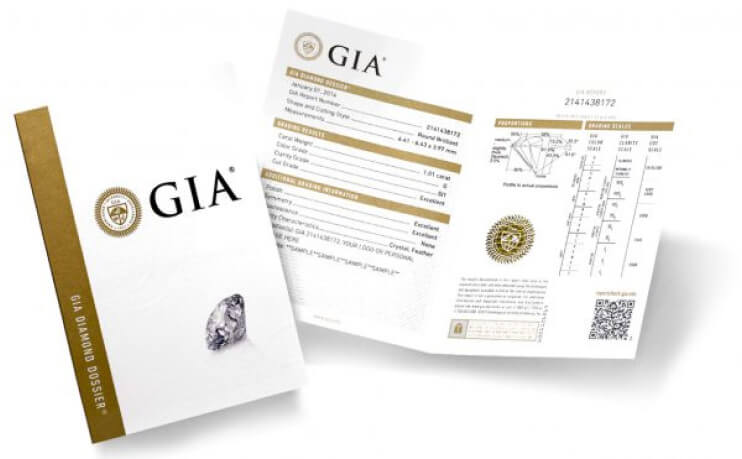
GIA Diamonds Certificates
A GIA certificate is a report card detailing the specific analysis carried out on a diamond of any shape or size above 0.18ct. The GIA only grades unmounted diamonds as settings prevent thorough examination. A certificate features a unique report number, which matches the GIA number laser-inscribed on the girdle of the diamond. The certificate features a comprehensive diamond report assessing a stone’s 4C’s: its clarity, colour, cut and carat weight. It also plots the diamond’s clarity characteristics and includes a polish and symmetry grade. Understanding a diamond’s key attributes is vital when it comes to the comparing quality and price of stones.
A GIA certificate is a report card detailing the specific analysis carried out on a diamond of any shape or size above 0.18ct. The GIA only grades unmounted diamonds as settings prevent thorough examination.
Learn More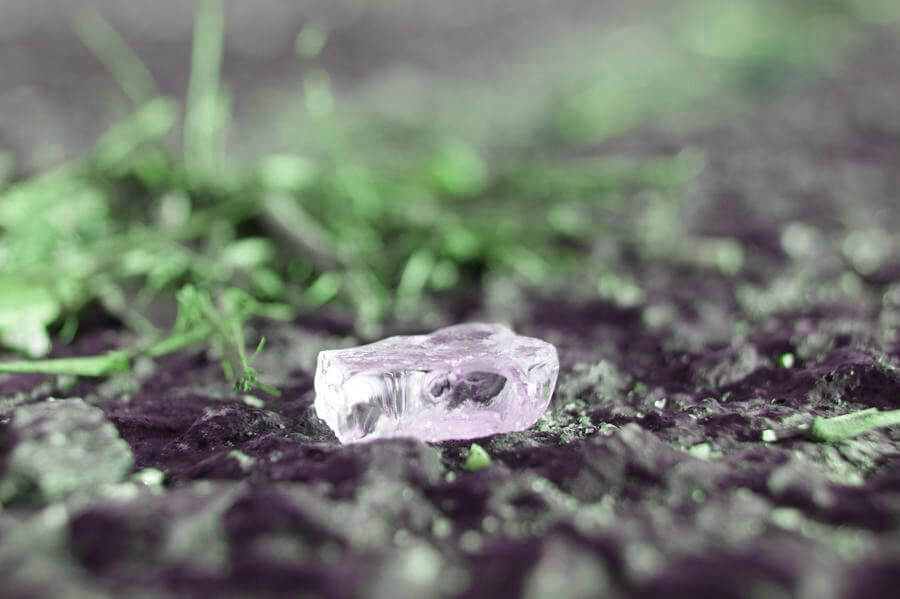
GIA Grading Reports
GIA certification enables the customer to competently compare stones like for like. When buying diamonds, always request to see the grading report and be cautious if a stone has not been certified by the GIA. Grade differences affect the value of a diamond but it is difficult to compare the value of a stone if it has been analysed using different a grading standard or method.
Choose A Reputable Jeweller
Steven Stone chooses to have its stones certified by the GIA because of its impartiality, we cannot influence the assessment of a stone. However, some jewellers use an in-house grading service. We believe that this is not best practice because resident gemmologists are often less skilled than those at the GIA and may have a commercial bias towards selling their stones. Despite using the same grading scale as the GIA, the customer cannot be certain of how objective the analysis is. The GIA created the grading scale that is the industry standard, and we trust it to be unrivalled.
Learn more at our Education HubEngagement Rings
FAQ's
The Gemological Institute of America established the diamond grading scale now accepted as a worldwide industry standard, and is widely regarded as the world authority on diamond grading. The GIA does not sell or source stones; it is the world’s most respected grading laboratory. An independent, non-profit organisation, it is the global authority on diamond grading and gem identification. It measures stones on their colour, clarity, carat weight and cut. We believe that this information is vital for customers to be able to compare diamonds on their price and quality.
Established in 1931, the GIA has been pioneering in its approach to grading, analysis and development for over 80 years. With educational campuses around the world, first-class laboratories and unrivalled research facilities, it is dedicated to gemmology and ensuring the public trust in gems and jewellery.
A GIA certificate is a report card detailing the specific analysis carried out on a diamond of any shape or size above 0.18ct. The GIA only grades unmounted diamonds as settings prevent thorough examination. A certificate features a unique report number, which matches the GIA number laser-inscribed on the girdle of the diamond. The certificate features a comprehensive diamond report assessing a stone’s 4C’s: its clarity, colour, cut and carat weight. It also plots the diamond’s clarity characteristics and includes a polish and symmetry grade. Understanding a diamond’s key attributes is vital when it comes to the comparing quality and price of stones.
A diamond certificate is extremely important when buying loose diamonds, diamond jewellery and engagement rings. It validates the quality of the stone and ensures its authenticity. There are many more diamond certification companies around the world, however they do not carry a great deal of authority and as such, should be treated with caution when shopping for diamond engagement rings and diamond jewellery.
There are five primary diamond grading laboratories. Only two of the labs listed below have an excellent reputation of grading diamonds unbiasedly and accurately. GIA and AGS are world-renowned and the most respected diamond grading laboratories. GIA invented the current diamond grading system we use today and is the benchmarking authority in diamond grading. AGS are usually known for grading higher quality diamonds with ideal cuts and proportions.
A certificate does not necessarily mean you should buy diamonds with absolute confidence. We would strongly recommend that you only shop diamonds with GIA or AGS certificates when purchasing diamonds online, as these are the only two which actually provide strict and accurate diamond grading. Less distinguished diamond certificates often assess a diamond as being anything from one to three colour or clarity grades higher, compared to a GIA or AGS certificate. This is why other websites may seem to offer comparable diamonds at a better price (up to 10% cheaper), but in reality won’t be comparing equivalents.

